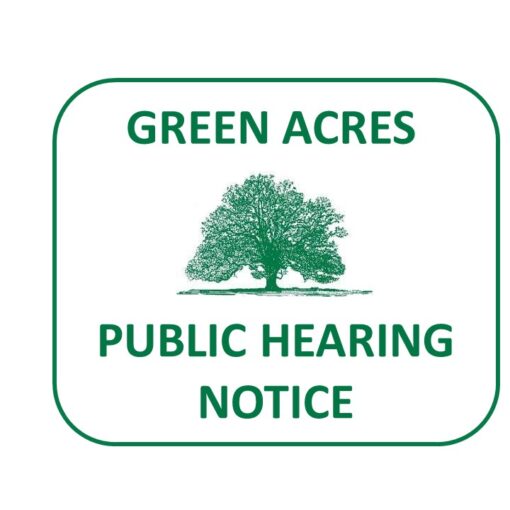FOR IMMEDIATE RELEASE
Contact: Bob Makin ([email protected], 732-541-3835)
Borough Approves Plans for Carteret Stages,
a Movie Studio Component of $1 Billion Waterfront Redevelopment
15-story project by Shrewsbury-based Bezzone Inc. includes hotel, restaurants, retail, rooftop amenities & parking garage
CARTERET, NJ – The borough planning board recently approved a preliminary site plan for Shrewsbury-based J. Bezzone Inc. to develop a 1.2 million square foot, 15-story multi-use project on a portion of the former DuPont site in the Chrome Waterfront Redevelopment Zone north of Veterans Pier and Carteret Waterfront Park.
Part of the borough’s $1 billion waterfront redevelopment, the project calls for a film and television studio with 12 20,000-square-foot soundstages, 120 suites for hotel service and social media production, 240,000 square feet of support and office space, a 25,000-square-foot retail and restaurant pavilion, rooftop amenities, and a parking lot and parking garage with 1,100 spots. The rooftop will include a pool, lounge and catering, according to the Mayor and Bezzone.
“It’s absolutely spectacular what’s proposed here,” Mayor Daniel J. Reiman said. “This is a great opportunity to continue to grow our industrial and commercial base, to really highlight the $2 billion in development that has happened in Carteret, and it ties in nicely with the performing arts center on Washington Avenue. This has the potential to create thousands of local jobs and pump a $1 billion in union construction into the waterfront area, as well as permanent long-term jobs like stagehands and the support staff that would be necessary. It’s a great project and a great opportunity for Carteret.”
Mayor Reiman said the project, which will partner Bezzone with The Birch Group, a New York-based property manager, has been in the works for about a year. He said the industrial site already has undergone a 10-year cleanup and could start construction as soon as all approvals, financing and studios are in place.
The project is planned for about 10 acres of the 35-acre former DuPont site. The height of the hotel is about 220 feet and each studio is about 40 or 50 feet high with space in between, the mayor said.
Other plans on the 35-acre property – the balance of which the borough is in the process of purchasing from DuPont – will include an outdoor amphitheater, additional retail, commercial, and restaurant space, another hotel attached to the forthcoming ferry building, and an expansion of the waterfront’s river walk, the mayor said. The ferry terminal is scheduled to break ground by year’s end, the mayor said.
Other studio projects proposed for Fort Monmouth, Bayonne, Harrison and Newark, but the stacked design of Carteret’s project is more like the film studio in Long Island City back by Oscar-winning actor Robert DeNiro. But this project will be unique because of its multi-use, Bezzone said.
“We are mashing up production with hospitality,” he said. “We have created a self-sustained business ecosystem designed for New Jersey weather and transportation infrastructure. Streamers can now operate in one environment with resort-like amenities.”
Multiple outlets for retail and hospitality will range from corporate dining to full-service food and beverage options.
Having developed properties from Boston to Atlantic City, Bezzone said he chose Carteret as a location mainly because of the transportation infrastructure of the New Jersey Turnpike, Newark Airport, and Carteret’s forthcoming ferry.
“Carteret’s investment in its waterfront under the bold leadership of Mayor Dan Reiman has created an engine of opportunity that we hope to share in,” the developer said. “For this project, we have partnered with Mark Meisner and The Birch Group who will take the ownership lead and provide the necessary resources required for a project of this magnitude and importance. This momentous achievement could not have been realized without the passion, entrepreneurism and support of Dan Reiman and Mark Meisner.”
Updates about Carteret Stages and other waterfront redevelopment will be available at Carteret.net or by following @MyCarteret on Facebook, Instagram, and Twitter.
Mayor Reiman discusses Carteret Stages and the other plans to redevelop the Carteret Waterfront in the following interview:
How will this development impact Carteret and why?
This could be a game changer. There are five of these projects around the state. Realistically, there’s only going to be two or three completed. Fort Monmouth has the potential to be just astronomical, but at the same token, they have no direct access. You can’t get the tractor trailers and the infrastructure you need off the Parkway because you can’t take tractor trailers on the Parkway. That’s why it’s so slow-going. I think we’re years ahead of them. Bayonne is a good opportunity in proximity to the city and the ferry, however, Bayonne is on an industrial site that is still in environmental remediation, and they’re three years away from being capped. Harrison is doing a smaller project. Newark is doing a smaller project with three studios with Lionsgate.
In Carteret, you’re right off the Turnpike. Your proximity to the city puts you in the Screen Actors Guild district. You have access through the future ferry terminal. You’re not coming through a residential area to get to the site. We have the land mass, ability and infrastructure for water, sewer and utilities, all of which would have to be brought down to Fort Monmouth. Our site is capped. The borough has control over the property. It’s in the Urban Enterprise Zone, a Smart Growth Zone, and a Redevelopment Area. There are so many factors that make it the prime location for this to happen.
We’ve been working on this six to nine months. The planning board voted unanimously to take it to the next step, which is to have their redevelopment agreement approved by mayor and council. Then they will be filing in front of the Middlesex County Planning Board because Roosevelt Avenue is a county road. That’s generally just a cursory review. We don’t anticipate any issues. And that will give us the opportunity to really develop the project. They already met with the Governor’s Office and the State Department of Business & Economic Development.
It’s an early preliminary approval. They still have a lot of work to do, but now they can take this, go to Hollywood and Wall Street, and say, ‘Hey, the city’s on board, the county’s on board, the state’s on board, let’s sign you up.’
You’re talking about thousands of union construction jobs and thousands of long-term job opportunities for local residents going forward, as well as the sale of the property because the borough owns this site. That development could be paying $3 to $5 million a year in taxes or more. Clearly it would be a payment in lieu of taxes. It could be a percentage of gross receipts, which is always good for the town because you’re tying the rate into the success of the project. The more money the developer makes, the more the borough gets, and typically, it’s more than normal taxes. And the reason the developer does that is because they don’t have to worry about the rate increasing because of huge tax spikes. So it’s a bankable guarantee, and finance people prefer that.
Like so many of these projects that we plan in Carteret, these are game changers. They create jobs, they put people to work, they pay significant taxes, significant economic benefits to the community. They continue to change and improve the community and make Carteret the perfect place to live, work, and raise a family.
Comment on how you sued Dupont, which had long abandoned the property.
We sued them 12 years ago, and the settlement was that they had to remediate and cap the site. They had to donate seven acres to the borough for the purpose of the ferry terminal, and then we would acquire the balance of the property.
Dupont was the first one we went after under Natural Resource Damages. Then we went after U.S. Metals, Ichabod T. Williams & Sons Sawmill & Veneer Plant, NY/NJ Port Authority, Basin Holdings. These older companies had moth-balled properties in town that had done nothing with them. They were vacant.
We own seven acres under our name, but we are under contract for the balance of the 35 acres. We are in control of the 35 acres. The day they get their final verification from the state, which should be any day now, then we close. We have the money site aside and can write them a check to take title to the whole site.
How do you as both mayor and resident of Carteret feel about this project both professionally and personally?
There are so many projects on the drawing board. The projects that we’re breaking ground on today were in concept phases two to three years ago or more. The projects that we’re talking about today, we won’t be breaking ground on until next year or two years or five years. We started the ferry terminal project 12 years ago. We started the waterfront over 20 years ago, and that was the first major initiative down at the waterfront to take back the Ike Williams pier and rebuild the pier, and then we built the park and parking lot. And it continued to grow.
Now we have the Southern River Walk, which will open up toward the end of this year, the Northern Boardwalk, which we’re out to bid on, and the ferry terminal. This is just going to be such a significant project for Carteret and all of Central New Jersey. You’re going to have entertainment, infrastructure, and transportation. We’re going to re-route those NJ Transit buses to the ferry terminal. We’re going to have our own jitney service in town provided services to residents in other areas of town with direct access to the ferry terminal.
It’s an exciting time, and there’s so much opportunity. But it’s long-term planning. We don’t do anything for today or tomorrow. We plan it so it’s planned growth for the next 50 to 100 years, and that means we’re not going to rush into it.
We’ve had an offer on the DuPont site already. I have developers come in. We could turn around and sell that site tomorrow if I wanted a warehouse. I don’t want a warehouse. We’re getting away from that. Even though that’s light industry, and there are places in town for that, like the industrial park out in West Carteret, like the new industrial park off of Exit 12. Those are perfectly suited for that type of development, but not along the water, where you have skyline views of Manhattan, where you have the channel, and you can look to the west, and you can see the Watchung Mountains, and look to the south and see the Raritan Bay, and you’ve got the ferry.
It sounds like the Carteret Waterfront eventually will be a cross between Jones Beach and Jersey City.
That’s a good analogy. I say Jones Beach meets PNC Arts Center because one of our concept plans is an outdoor amphitheater down there. We can have an outdoor concert with 20,000 people on the DuPont property. We’re looking at all kinds of things.
We’ll have the final design and concept on the ferry terminal building toward the end of this year once the feds do their appropriations bill. We’re in the appropriations bill for a $6 million grant for the ferry terminal building. Right now, I have $8 million from the State of New Jersey for the ferry terminal building. I have $6 million from the Federal Transit Administration for the ferry terminal building. I have $2.5 million in prior earmarks. We’re at $16.5 million. If I get this other $6 million, it bring us up to $22.5 million, plus our Urban Enterprise Zone and capital dollars. Now you don’t just have a terminal building like you have in Monmouth County, where it’s a one-story just open for the terminal – you’re in and out. This would be more like Grand Central Station or Union Station in D.C. There’s restaurants, bars, retail shops, office space. This is designed to be like something they have out in Seattle. The Seattle Ferry Terminal is mind-blowing. Arguably, this ferry terminal would have 10,000 square feet for a training and banquet facility. It would have 10,000 to 20,000 square feet of office space that we would lease out. With the proximity to the ferry and the city, it could be financial offices, banking and international transactions. It could be anything from A-Z geared to high-end office-type use. And then you have the rooftop element.
Why was J. Bezzone chosen for this project?
Joe Bezzone is the developer. He came in to tour Carteret last year. He has a history of successful projects and developments and putting together the projects, the financing and approvals. We were impressed with his pedigree and resume, so we selected him. He was the first guy to come in and say, ‘I think we can do a studio concept.’ The studio was his idea, knowing that others were looking at these studios and that location is key.




